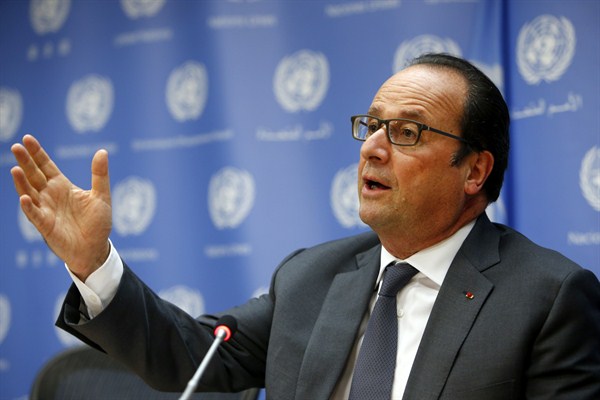This week saw big news for foreign military engagement in the Syrian civil war: On Sunday, France launched its first round of air strikes against Islamic State targets, after years of reticence toward any military involvement in Syria. And on Wednesday, Russian aircraft dropped bombs against Syrian opposition fighters—after asserting it would target the Islamic State. That same day, France announced the opening of an unprecedented inquiry into crimes against humanity under Syrian President Bashar al-Assad.
France began an air-strike campaign against Islamic State targets in Iraq last year but refused to engage in Syria, arguing that strikes there could strengthen Assad. Recently, however, the political and public appetite in France for a larger-scale Syrian intervention has increased: A recent survey by the polling organization Ifop indicated that a majority of French citizens support putting troops on the ground in Syria, which French President Francois Hollande has rejected. France announced its plans to launch air strikes in Syria in early September.
“There’s generally widespread support for greater involvement in Syria,” says Jean-Dominique Merchet, a French columnist who has analyzed defense issues for over two decades. “Up until now, France was banking on Assad’s eventual fall. But it’s become clear that he’s not going away any time soon. It was time for France to get back in the game.” Although popular demand for more heavy-handed action has not resonated with politicians, it does mark a shift, which Merchet attributes to the uptick in terrorist attacks in France over the last year, the rising number of French citizens fighting in Iraq and Syria and the migrant crisis. “It’s all provoked a very emotional response,” he adds, noting that the public’s support for military engagement is “very theoretical, as everyone knows that France won’t put troops on the ground.”

